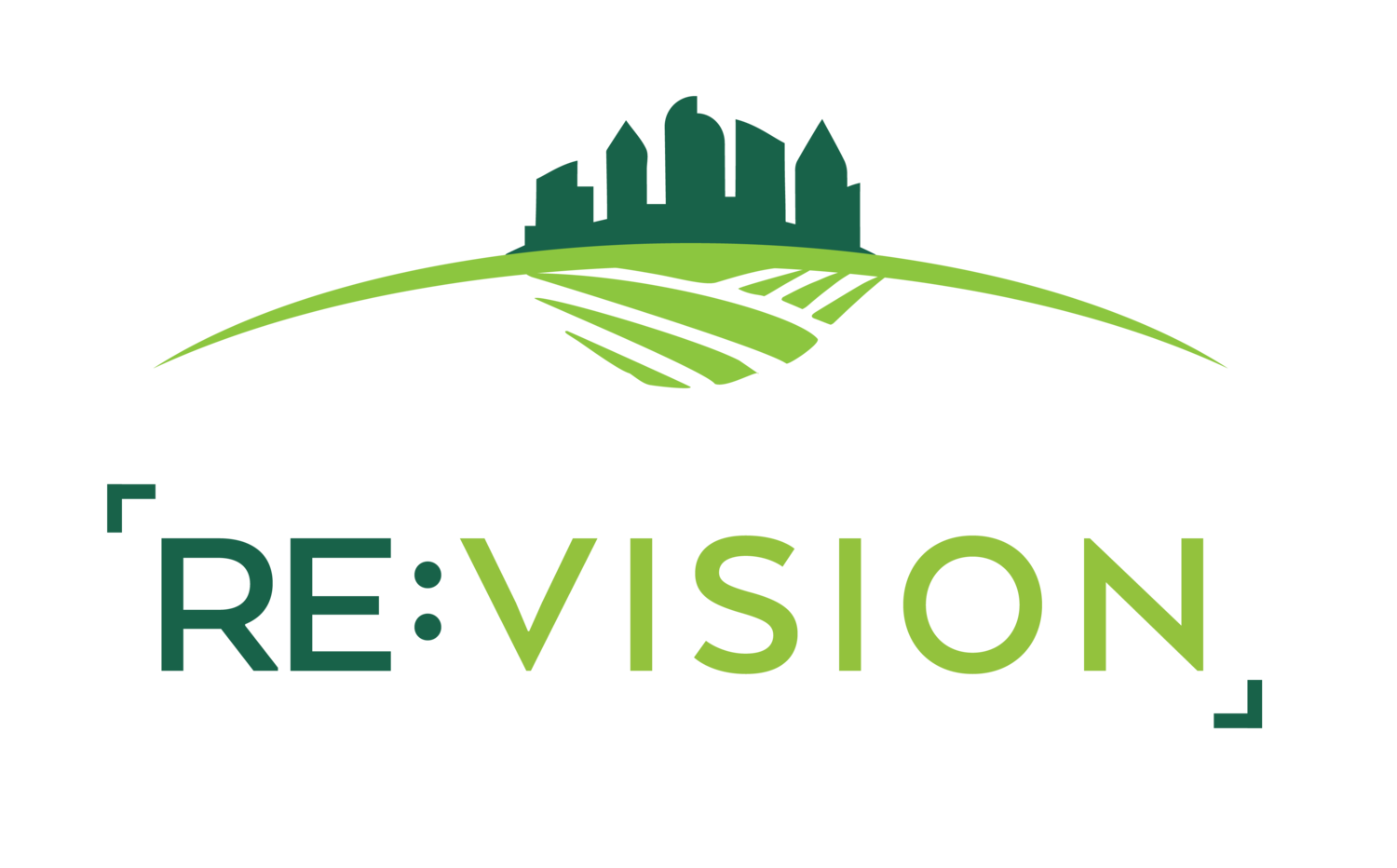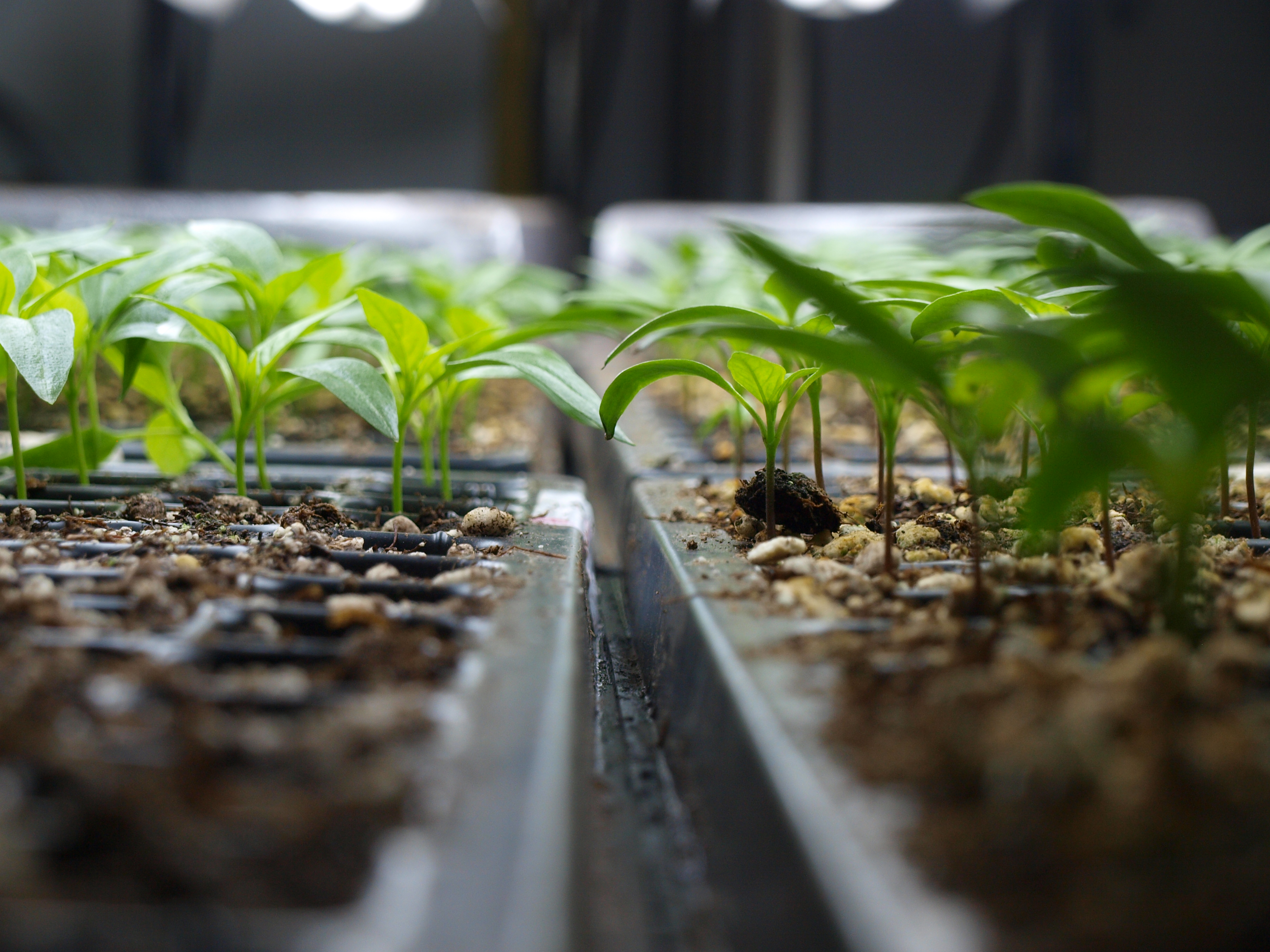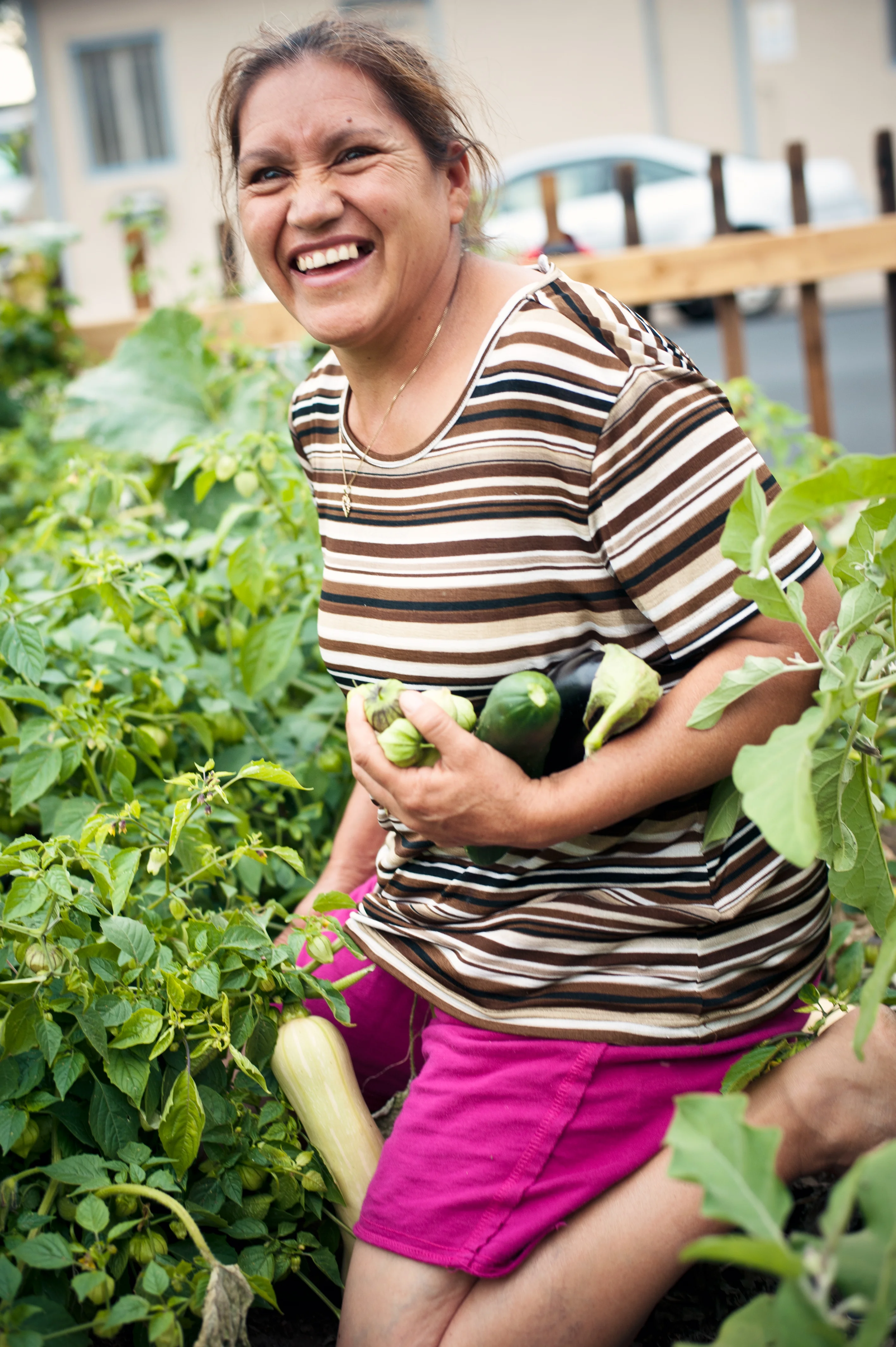
Re:Write
STORIES FROM THE FIELD, PROMOTORA RECIPES, AND CO-OP DEVELOPMENT LESSONS (PLUS SOME POLITICS AND HUMOR, TOO)
From Your Garden to Your Neighbor's Plate?
Home-based and community gardening is on the rise in Denver. As many gardeners know from experience, a summer's bounty can overwhelm the home kitchen. For those that would like to cultivate a hyper-local food economy by selling their bounty to their neighbors - which is currently illegal - change could be on the way.
Urban Ag in Denver: Zoning Codes
Are you a gardener in Denver? Did you know that it is currently illegal to sell your produce directly to consumers from your home or community garden in Denver? While Denver allows certain professions to sell products and services out of the home, fruits, vegetables and value-added items are not included within the law. At Revision, we would like to see change in the current policy that would allow urban gardeners and farmers to sell their produce on-site by allowing urban production to be classified as a Home Occupation. Other cities in the U.S., such as Kansas City, Cleveland, San Francisco, Philadelphia, Seattle and Portland have already implemented such changes, and they have greatly increased the access to organic produce for their residents. In order to continue on our mission towards sustainability and increased food security, it would be wise to implement this type of policy change within Denver. On the bright side, you can sell your produce and value-added items at farmers’ markets or even to restaurants. Interestingly, Denver’s current zoning regulations are in contradiction to the Cottage Foods Act that was passed by the Colorado Senate in 2012--let’s take a look.
Senate Bill 12-048: The Cottage Foods Act of 2012
In the year 2012, the Colorado Senate passed the Cottage Foods Act to strengthen Colorado’s local food industry by making it easier for individuals to create value-added food products from their home kitchen and sell on a limited scale to the general public. The bill allows you to produce and sell certain value-added items that are considered non-hazardous (meaning they have a low-risk of making people sick), including: teas, spices, dehydrated produce, nuts, seeds, honey, jams, jellies, preserves, fruit butter, baked goods and candies. You can even sell up to 250 dozen eggs per month! The bill also allows you to sell up to $5,000 per year for each value-added item that you produce, including variations of an item i.e. raspberry jam or blackberry jam. You are allowed to sell these items from your home provided that you complete a Food Safety Training course.
Current Policy: Pros & Cons
While the movement towards urban agriculture in Denver is progressing, several current policies are preventing it from growing further. At this point in time, zoning laws make it illegal to sell Cottage Food items through your home in Denver even though state law allows it. Likewise, if you grow fruits and vegetables at home or at a community garden, you are unable to sell your produce to your next door neighbor or to other consumers unless you do so from a non-residential site. These restrictions on home sales of produce and value-added items are especially difficult for low-income individuals and families, as the prices of permits and the distances necessary to travel to farmers‘ markets can present a challenge.
In order to maximize the potential of urban agriculture, we need to make amendments to the current codes that allow individuals and families to sell both agricultural products and value-added items from their homes. By doing so, community ties will be strengthened, and lower distances to travel to obtain food will encourage biking and walking. Although access to local food is increasing, there are still barriers between producers and consumers. In order to promote food justice and environmental sustainability, we need to close this gap, and progressive policy is the first step in order to achieve this goal. However, there are some potential negative impacts that need to be considered: Parking and noise control could become issues. However, with community agreement, we should not let these potential setbacks deter urban agriculture from reducing the distance between farm - or your garden - and your neighbors table.
Written by Austin Lear, Public Policy Intern
Water - Part I
It is something which permeates every facet of our lives – it is the foundation of hydration, our food, for our heating and cooling systems, our construction, and our clothing and shelter.
And we’re using A LOT of it.
According to Denver Water, the City & County of Denver uses 265,000 acre-feet of water. Imagine a football field with a foot of water standing on it – then picture 265,000 of those. Let’s put it another way. The average person in Denver uses 168 gallons of water per day! And lest you think its all those restaurants and businesses squandering that water, in all reality, residential (single and multi-family homes) usage accounts for over 65% of all usage (172,000 football fields full of water!).
To top it all off, 55% of all water usage at the residential level is for outdoor irrigation/use, i.e. your sprinkler system.
A quick scenario to bring this home. My wife and I recently purchased our first home in the Barnum neighborhood in August. The average sprinkler head sprays about 3.5 gallons per minute and the home had a sprinkler system consisting of about 10 heads. Now, if we watered as per Denver Water’s Stage 2 watering rules (in effect as of April 1st this year), which is only twice per week, we’d use about 27,000 gallons from May through September and spending about $75 in water bills.
Now, if we switched entirely over to drip irrigation and grew vegetables (which we’re doing), and watered 45 minutes every single day, in that same five month period we’d use approximately 3,200 gallons and spend $8.32!!! Not only would we save $67, we’d also save enough water to provide the average Denver home with 141 days of water!!!! Not to mention all the money we’d be saving on food from the wondrous produce we’ll be harvesting.
And this is a reality for 200 low-income families this year through Revision’s Re:farm Denver program. 200 families are receiving drip-irrigation systems, using less water, saving money, and are empowered to lead healthier lives.
Want to help out? Donate now.
Community-grown Seedlings
During the dark, cold days of winter, we warm up by reading through stacks of seed catalogues and dreaming of the hot summer days ahead! In order to supply our 200 backyard gardens and 2 urban farms, we have to grow approximately 10,000+ seedlings – no small task!
We just finished our greenhouse at Kepner Middle School, so since we needed to start our seedlings before construction was complete, the little guys have been cozy indoors under grow lights. The back half of our office has been converted into a tropical greenhouse (on cold days, you can find staff members warming up over the plants instead of working at their desk!)
This year we are excited to announce our first annual plant and seed sale! Mark your calendars now for Saturday, April 27th and May 4th and 11th – just in time for Mother’s Day. Not only do we use certified organic seed and growing mediums, guaranteeing quality plants that you can trust, but proceeds from our plant sale will support backyard gardens for low-income families!In addition to seeds and seedling transplants, we’ll be designing and selling custom drip irrigation kits for your garden (bring a detailed, dimensioned drawing of your garden along with the distance to the water source with you), and we’ll have Maxfield’s Organics soil amendment products for sale! Make us your one-stop shop for gardening this year.
Winter Farm Work
Despite the recent snowy and cold weather in Denver, we’ve been busy getting our gardens and our urban farms ready for a productive growing season!
During February, AmeriCorps members helped Revision complete its greenhouse at Kepner Middle School – just in time to grow the more than 10,000 seedlings that Revision will plant and sell this spring! The team also helped construct two new high-tunnel hoop houses at the Ubuntu Urban Farm, providing an additional 2000 square feet of protected growing space. These high-tunnels will extend our growing season by several months, and will also help protect crops during the summer. A special thanks to Mr. Michael Jeronimus for generously donating these hoop house materials – they will make all the difference.
We are excited for our first full growing season at the Ubuntu Farm, a collaboration with the Somali Bantu Development Council and Revision’s promotoras and other community partners. We will be producing food for the community while developing new economic opportunities as well. Both the Kepner Urban Farm and the Ubuntu Farm are cornerstones in developing food security and economic opportunity for southwest Denver.
Stay tuned for volunteer days, farm tours, sustainability classes, and farm dinners this year!
Transforming Families, Transforming Communities
In 2009, we began teaching families how to grow food in their own backyard in order to feed their family healthy, fresh, organic food. For most of these families, this is the only way that they can afford to eat healthy, the only way they can feed their children organic produce. We started in the Westwood neighborhood, nestled in Southwest Denver and the home to most of our family gardeners. Westwood is food desert, meaning the residents have no grocery store in their community. This, coupled with their modest economic resources, translates into an unhealthy diet. A 2009 study of the neighborhood found that 76% of adults were either overweight or obese.
From seven families in 2009, to 87 in 2011, our program more than doubled every single year. In return for providing families with the resources and technical support to feed their family, we ask that they pay the gift forward and refer another family to join the program.
In 2012 we helped 168 families learn how to grow their own food and feed their family. Over 90 percent of these families live on less that $15,000 a year – which is abject poverty. But because of our program, over 16,000 pounds of organic produce was grown this year in a community that has zero healthy food options.
But these numbers alone do not tell the real impact that our work has. Based upon data collected from 160 families this year:
- 93% said that they eat more fruits and vegetables
- 94% eat fresher food/less packaged food
- 96% cook at home more
- 84% eat more organic food
- 84% eat less fast food
This data shows that Revision’s model is having an immediate and measurable impact on a community that has the highest rate of obesity in children under the age of 18, in a community where the average household income is 50% less than the average Denver household, and in a neighborhood where this is no healthy fresh food.
The success of this program has been rapid. After 4 short years, we have built a critical foundation for a community to change. We have cultivated leaders from within, offering them a better life and new opportunities. We have helped guide a community to develop their own food system – through the production and distribution of healthy food, and through the education and job creation that encompass it. We are not just growing gardens. We’re growing community. We’re not just cultivating food. We’re cultivating potential.
And we're not content to let it rest at potential. Starting in 2013, Revision will coalesce all the momentum in the neighborhood so far - over 200 gardening families, 2 urban farms, the beginnings of a meaningful food distribution framework, and ever-deepening education - into a community-owned cooperative. This would be a separate entity, owned, led, staffed, and managed by community residents themselves. This cooperative, over a transition period of a few years, will provide economic opportunity, enhance the existing community resources, facilitate the production and distribution of food by, and for, the community, and increase the access to healthy food in a food desert. In 2013 Revision will begin by holding community meetings, recruiting and training a co-op board of directors comprised mostly of residents, and bringing together experts in cooperative development to aid in establishing a sustainable business plan and operating framework.
We'll keep you updated on the progress of the cooperative development throughout the year on this blog, so stay tuned!





